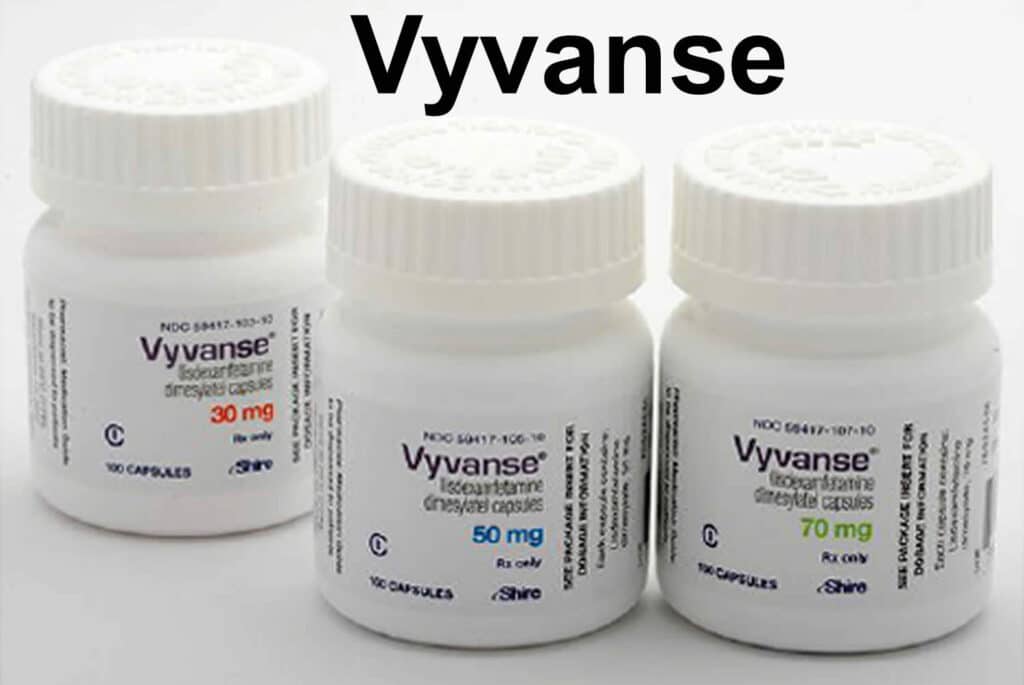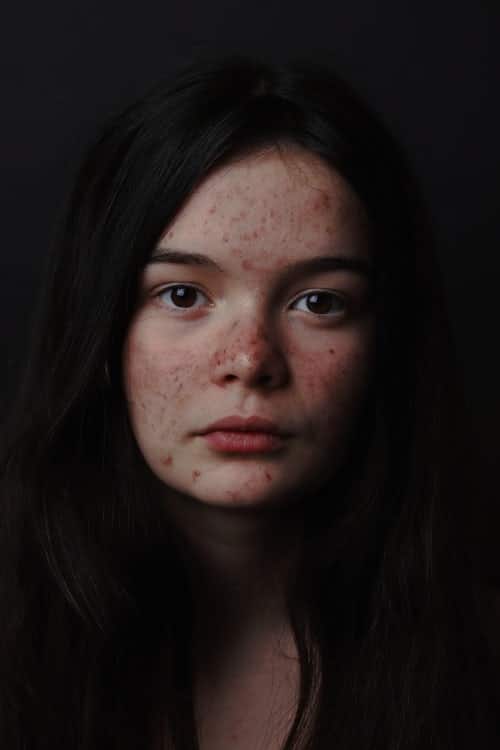Vyvanse is a prescription medication that is advisable for the treatment of ADHD. It’s an amphetamine, affecting the central nervous system by making dopamine and norepinephrine available to the brain.
But what about acne? Does Vyvanse cause acne? According to some medical professionals, many factors play into whether or not someone experiences acne while taking Vyvanse. Read this article to find out more!

Why Do I Have Acne?
If you’re experiencing acne, it is essential to understand why that may be happening so that your doctor can help you take proper measures such as modifying medications or dieting to clear up skin breakouts associated with Vyvanse use. The most common reasons for acne include:
1. Genetics
Your genetics could be a significant player in whether or not you develop acne after taking Vyvanse. Those with family members who have experienced increased acne and those who developed breakouts earlier may share the same issues while on ADHD medication such as Vyvanse.
2. Climate
The climate where you live also plays a role in whether or not you experience acne while taking Vyvanse. For example, if your home is humid and hot, the likelihood of developing acne increases compared to someone who lives in a dryer environment with less humidity.
The same goes for having an indoor versus an outdoor job. If you work outside, your acne will be worse than someone who works indoors in a climate-controlled environment.
3. Stress
If you are under extreme amounts of stress either at home or at work, it can also affect whether or not Vyvanse causes acne for you. When the body experiences high levels of stress, it releases cortisol which regulates the immune system.
If you have a limited ability to produce cortisol or your body cannot regulate its levels properly, that can cause an imbalance in your endocrine and immune systems, leading to acne breakouts.
4. Hormone Changes
It is the main reason why people have acne problems. Frequently these hormone changes are because of puberty which usually starts between ages 12 and 13 in girls and boys, but it may begin as early as age nine or later than age 15. Your doctor may run tests to measure your testosterone and estrogen levels to determine what’s causing acne.
5. Other Conditions
If you have other medical conditions such as diabetes or PCOS, it can also cause acne. In general, if your body is not working correctly and the production of natural hormones are out of balance with one another, there is a higher likelihood that Vyvanse will be the culprit behind your skin breakouts.
It’s important to note that not everyone will have acne issues when taking Vyvanse. Still, it’s a good idea to be aware of what causes acne and how you can prevent or manage breakouts associated with ADHD medication.
Does Vyvanse Cause Acne?
If your doctor determines that Vyvanse is the cause of your acne, there are a few things you can do to help manage breakouts.
First, let your doctor know if the medication is causing severe skin outbreaks. They may suggest switching medications or lowering dosages to prevent acne from occurring due to taking Vyvanse. If the dosage amount is not the issue, your doctor may recommend changing your diet or lifestyle.
You can also ask your physician if supplements could help clear up breakouts, including omega-three oils and vitamin A which are good at alleviating acne problems associated with Vyvanse use.
It is also essential to maintain a healthy weight since obesity is a common trigger for acne issues. If your doctor recommends dieting, it is crucial to follow their guidelines when choosing meals to avoid nutrient deficiencies which can be harmful to overall health and wellness.
You may also consider changing your skincare routine if Vyvanse leads to frequent breakouts. For example, wearing heavy makeup and sweating much throughout the day may contribute to your acne problems.
You can change your skincare routine by using more natural products such as witch hazel which helps reduce inflammation caused by breakouts.
What Are The Symptoms Of Acne?
Common acne symptoms include:
• Pimples and red or inflamed skin that may become swollen.
• Whiteheads, blackheads, and deeper lumps in the skin (cysts) can be painful.
• Scars after lesions heal. Acne occurs on the face and affects other parts of your body, such as the back and chest.
Alternatives to Vyvanse for ADHD Treatment
If Vyvanse is not the proper medication to treat your ADHD symptoms, talk with your doctor about other options. While it’s true that there are many benefits associated with taking Vyvanse, such as increased energy and focus, it does mean that every individual will experience these positive benefits.
If you experience severe skin breakouts due to Vyvanse use, discuss your concerns with your doctor to find the right ADHD medication for treating your symptoms without causing adverse side effects, including acne issues.
What Are The Best Foods To Eat For Acne-Prone Skin?
Eating an acne-fighting diet can be a great way to help keep your skin clear of breakouts. Some foods reduce inflammation which is one cause of acne.
For example, the omega-three fatty acids found in fatty fish such as salmon and mackerel reduce inflammation, leading to acne breakouts. It is also a good idea to eat foods with vitamin A and zinc, which help the skin renew itself.
Leafy green vegetables, fruits, especially cantaloupes, avocados, grapefruit, and nuts, including almonds, contain high vitamin A levels.
Whole grains, beans such as lentils and black beans, dark chocolate, which has a higher concentration of zinc than milk or white chocolates, and lean meats also help to reduce acne breakouts.
Vyvanse is an effective medication for treating ADHD. However, you may experience some side effects while taking this drug, including skin breakouts. If you experience severe acne due to Vyvanse use, talk with your doctor to find the best way of treating your symptoms without causing harmful side effects. In addition, eating an acne-fighting diet is a great way to keep your skin clear of breakouts and reduce the risk of developing scars.

